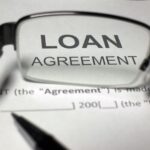Annual percentage rate (APR), an interest rate that includes all fees and costs associated with a loan product. APRs can reach triple-digits for some emergency loans such as payday loans and car title loans. You could end up paying more than the original amount borrowed. Interest can quickly accrue so it is possible to pay three to four times as much. You should carefully read the loan disclosure to find out what the APR and how it impacts your total repayment cost. The National Consumer Law Center recommends a limit of 36% for small loans.
Must Read: https://www.explorerloan.com/emergency-loan/
This ensures that you can afford the payments
Repayment term: It depends on which type of loan you have, it could take weeks, months or years to repay. Payday loans and car title loans usually take you only two to four weeks. Personal loans, cash advances, and PALs can be repaid over several months or even years. This makes it easier to manage your monthly payments.
Fees: There are many fees associated with emergency loans, such as origination fees. These fees can significantly increase the cost of your loan and make it harder to get out.
Collateral: Personal loans, cash advances and PALs can be secured, but some emergency loans require collateral. You risk losing your property if you default on your payments. You should have a budget and a repayment plan in place before you take out a loan with collateral.
Payday loans can be funded in a matter of minutes. This is a huge advantage over personal loans which can take many days to process. Some personal loan lenders and PALs offer fast loan disbursement. Make sure to shop around until your find the right one.
The average amount of an emergency loan is between $200 and $1,000. Personal loans are a better option if you have more urgent needs. They usually allow for a higher maximum loan amount.
Credit requirements: If your credit score is good or excellent, you have more options than someone who has bad credit. A strong credit score can help you qualify for personal loans at relatively low interest rates and allow you to repay the loan over many years. Contrary to emergency loans for poor credit, these loans have very short terms and high interest rates.
Never Miss: https://www.flowingloan.com/home-equity-line-of-credit/
How to get an emergency loan with bad credit
It can be difficult for a lender to work with you if you have bad credit or no credit history. There are ways you can increase your chances of getting a loan.
You can add a cosigner to a loan if you have a family member or friend with good credit and reliable income. This could help you get approved even if you don’t have the best credit. The lender may require a cosigner to pay the loan if they fall behind.
Use collateral: You may be eligible to receive a secured loan even if you are unable to qualify for an unsecured emergency loan. A loan can be secured by your vehicle, boat, or motorcycle.
Visit a Credit Union. Credit unions are non-profit organizations that serve their members. Credit unions often have lower credit requirements than other lenders and may offer financial counseling for free.
Also Read: https://www.allaroundloan.com/emergency-loan/
5 Alternatives to Emergency Loans
These are some alternatives to debt that you can use to cover an emergency expense:
- Ask for help
Although it is difficult to reach out to family and friends for financial help, it is often a better option than turning to high-interest, predatory loans. Cole says that borrowing from your family is not always the best option. However, Cole suggests that if Cole is talking about the difference between being evicted and having to borrow money from their family, he recommends looking to his family.
Asking for help is a good idea. Make sure that you both understand whether the money you are receiving is a gift or loan. Discuss repayment terms and whether the loan must be repaid with interest or without. Also, what terms of payment they are expecting.
- Apply for a 0% APR credit card
You may be eligible for a 0% APR card if you have excellent to good credit. Some credit cards have 0% APR intro periods that last between 12 and 18 months. You won’t pay interest if you pay the balance in full before the 0% rate period ends. Be aware that if you don’t pay the balance by the end the intro period, your credit card APRs will be high.
- Get in touch with your local non-profit organizations
There may be social service agencies or non-profit credit unions in your locality that can offer financial assistance or low-interest loans.
Arevalo says, “I always suggest that people look for local resources such as 2-1-1, local churches, charities, rescue funds or rental delinquency money.”
To get referrals for programs in your area, you can text, call, or email 2-1-1
- Request a Pay Advance
Contact your employer’s payroll or human resources department if you are currently employed. You might be eligible for a salary advance, which allows you to get a portion of your next pay check early.
- Ask Your Creditors for Forbearance
Contact your creditors if you are having trouble paying your bills or have an unexpected expense. They may be able to help you.
Arevalo advises that you talk to your creditors to find out if they are willing to offer forbearance or payment delay. He adds that even if the offer is short-term, it could free up funds.
Not a good idea to take out emergency loans
It can be difficult to research when you are in an emergency. According to the National Consumer Law Center, it is important to fully understand the cost of any loan that you take out. Avoid loans with an APR exceeding 36%. You may end up owing thousands of dollars more than what you borrowed originally due to high interest rates.
Most Popular: https://www.adviseloan.us/onemain-financial-loan/
Building an Emergency Fund
Once you have dealt with an unexpected expense, it is time to improve your financial situation by creating an emergency fund. You can avoid having to resort to payday loans and other quick cash sources by keeping money aside for unexpected expenses.
Arevalo says that the best way to create an emergency fund is by using a slow and steady approach.
Set up automatic savings. He suggests that you choose a amount that is both realistic and comfortable. He adds that even a small amount like $25 or $50 per paycheck can add up.


